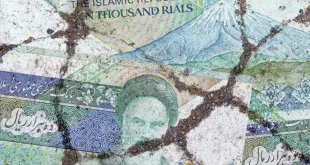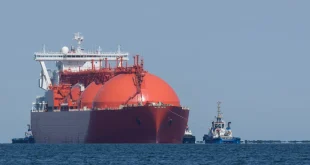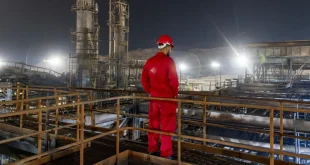Supply and demand are the two central elements of price stability in the global energy market. Moreover, the rate of economic growth of major energy-consuming countries such as China and India also plays an important role in market stability. In addition to these two main components, geopolitical events in major energy producing areas or along energy transit routes are also critical factors.
CHINESE OIL DEMAND
The spread of the coronavirus from early January has been one of China’s biggest socio-economic and security challenges. Most countries in the world have taken special measures to combat the spread of the virus and have evacuated their citizens from China. Some major companies in the world, including Apple, have shut down their factories in China. Economic experts report that one reason for the decline in demand is the reduction of air transit. Based on the assumption that domestic and international air transport in China has always had a serious impact on China’s economy, there seems to be a direct correlation between the decline in air travel and China’s economic-trade indices.
Considering the history of SARS outbreaks in China, when the demand for aircraft fuel declined sharply, the IEA predicted that the demand for aircraft fuel would also decline as a result of the outbreak of the coronavirus. In the first three months of this year, the demand will decline by about 125,000 barrels a day, and in the following three months until June, it will decline by more than 140,000 barrels a day. However, the global oil market will not be affected by the slowdown in China’s economy, which will reduce demand for oil, particularly because Wuhan, the main center of the coronavirus outbreak, and one of the main transit and transit routes for goods and passengers in China, has been quarantined which will significantly reduce fuel demand.
OPEC AND COUNTERING THE IMPACT OF THE CORONAVIRUS ON THE OIL MARKET
Saudi Arabia, one of the world’s largest oil producers and one of China’s largest oil sources, is closely monitoring the outbreak of the coronavirus. According to Saudi Oil Minister Abdul Aziz bin Salman, the country is carefully monitoring the impact of the developments regarding the coronavirus on the oil market, as well as the “negative expectations” of the impact of the coronavirus on both China’s economy and the global economy and other factors. According to him, China was able to overcome the SARS virus, during which time China’s demand for oil imports did not decline. He believes that Saudi Arabia, along with other OPEC and OPEC Plus members, is ready and able to respond appropriately to developments in the oil market.
Given that China has not yet managed to control the coronavirus and the scope of the disease is increasing day by day, the country’s economy and the oil market will likely suffer from the outbreak in the short term. The deceleration of China’s economic growth means it will lower its demand for energy imports. With the surplus of oil on the market, the spread of the coronavirus could lead to a gradual decline in oil prices in the coming weeks. It appears that the OPEC and OPEC Plus members are trying to cut down production to offset the decline in oil prices so that oil prices do not fall further.
OIL PRICE DECLINE
US West Texas Intermediate crude and international benchmark Brent crude on Monday posted their worst day since 1991. WTI plunged 24.59%, or $10.15, to settle at $31.13 per barrel, WTI’s second worst day on record. International benchmark Brent crude slid $10.91, or 24.1%, to settle at $34.36 per barrel. Earlier in the session, each contract fell more than 30%. WTI dropped to $30 while Brent traded as low as $31.02, both of which were the lowest levels since Feb. 2016. A short fall in oil prices may be favored by the US and the Trump administration in the short run, but in the medium term it will cause unemployment in the US shale oil industry.
One could argue that world oil price volatility in the coming days will reflect the extent and scope of OPEC Plus’s impact on the market. If the market does not respond well, changes in the market structure should be taken seriously. The drone attack on the Aramco refinery facility in September, which disrupted 2% of Saudi oil production, will not have a long-term impact on the oil market. It seems that the dynamics of the global energy market have started to change after the recent OPEC meeting, with Brent crude prices falling sharply.
Oil prices will continue to fall if Saudi Arabia’s decision to increase production in April is implemented and Russia maintains its current level of production. Aramco does not appear to be willing to reduce its market share, and will perhaps increase production for a certain period of time. The lack of economic production of shale oil will reduce oil production in the US. It may be able to import oil at a cheaper price, but its dependence on imported oil will increase. Even the Trump administration, which has made the slogan of energy independence a pivotal point in its national energy policy, will fail in effect.
The oil market will face a sharp surplus in the near future due to the spread of the coronavirus and the prospect of the collapse of demand and economic growth. The US shale oil industry will not recover from its recent decline and will not experience the explosive growth that it experienced in previous years, which will limit the growth in supply. On the other hand, others have warned that the current situation may not be a cyclical downturn and that the explosive growth of the shale industry may be over.
SHALE COMPANIES
For Shale companies with large debts, slower growth in production and negative cash flow eliminates many drilling companies unable to avoid bankruptcy. According to Heinz and Boon’s statistics, there have been more than two bankruptcies in the North American oil and gas sector since year 2015, so the deceleration in US shale growth controls global supply. On the other hand, a demand curve is also on the way.
US Bank predicts that global demand for oil may fall from 1.35 million barrels a day to just 0.59 million barrels a day by 2021. Ultimately, both supply and demand growth will decelerate, which is an unfavorable equation for the oil industry up to the year 2025.
Meanwhile, OPEC still faces two paths, and the US’ Merrill Lynch expects the group to continue losing more market share to prevent further oil prices from falling.
NATURAL GAS AND LNG
The price of natural gas has recently fallen to a very low level and has been falling since the beginning of the year. According to experts, the reason for the decline is a surplus of supply and an increase in gas stocks. In these circumstances, something like the coronavirus outbreak is by no means good news for the world’s major gas producers. Royal Dutch Shell, the world’s largest supplier of liquefied natural gas (LNG), has expressed concern over the coronavirus epidemic, saying that the outbreak has caused some LNG shipments heading to China to be diverted and shipped to other destinations.
In addition, based on data by Kepler Institute, Reuters recently announced that four LNG tankers have been shipped to North Asia. There are also 15 other tankers globally designated as a floating tank, with 11 tankers being dispersed throughout Asia. Reuters also reported that China’s National Offshore Oil Company, the country’s biggest LNG importer, has suspended contracts with at least three suppliers worldwide.
The company’s largest suppliers of liquefied natural gas include Royal Dutch Shell Energy Company, Total France, Woodside Petroleum Australia and Qatar. With the impact of Covid-19 on the natural gas market, Rainer Seal, OMV’s chief executive, also told Bloomberg TV that the gas market has been hit harder by the virus than it has hit oil. In response to a question about the future of the market, he said that if the weather does not cool down and demand for clean fuel does not rise, we should see a surplus next year.
The price of the fuel has followed a downward trend since November 2019. In the Nimax market, the price per million btu of natural gas has fallen by about a dollar and has reduced from more than $2.8 to about $1.8. China is the second largest importer of LNG after Japan. Due to the duration of the LNG contracts, the LNG market of the country will not be harmed, at least in the short term, by the virus. However, if China fails to control the disease in the short term, the price of LNG could be expected to fluctuate in the medium term. China is also a major customer of Iranian oil in the gray market. Iran has already suspended round-trip flights to China, and there is a possibility that the spread of the coronavirus could reduce Chinese imports of Iranian oil to the gray market.
Oil prices have been relatively stable in recent months after drones attacked the Aramco refinery. Earlier, oil prices fluctuated due to continued insecurity in the Strait of Hormuz and the seizure of tankers. From late October to the start of the new year, Brent crude and West Texas Intermediate crude prices fluctuated. China’s National Offshore Oil Company (SNOOC), China’s largest liquefied natural gas (LNG) importer, has suspended contracts with at least three suppliers amid the rapid spread of the coronavirus. According to two sources, the company, which operates about half of the LNG import terminals in China, has declared a state of emergency, meaning companies are allowed to suspend contracts in unexpected events such as strikes and disasters.





